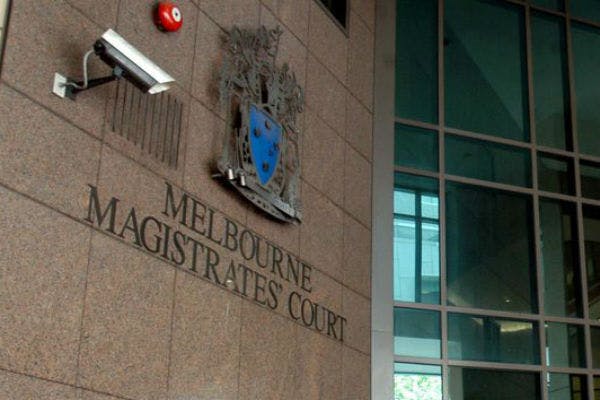Racism in Australia runs deeper than the courts

In the first three months of 2020, Aboriginal people were arrested at ten times the rate of non-Aboriginal people, according to the Australian Bureau of Statistics. And in the small towns of the New South Wales Northern Rivers, there are constant reminders of police racism.
“In my community racism is very much alive”, Dunghutti activist Christine Dungay, who lives in Kempsey, says over Messenger. “My town has a lot of Aboriginal people in it; we face racism as soon as we step out our front doors.” Christine’s brother David Dungay Junior was killed in a Long Bay Prison cell in 2015. “It really starts with the police. There are so many racist police that try their hardest to get Aboriginals jailed”, she says.
A Sydney Morning Herald investigation has revealed that, while the racism of the criminal justice system might start with the cops, the courts continue to persecute Aboriginal people. The investigation into local court data found that Indigenous people are twice as likely to go to jail as non-Indigenous offenders in the Northern Rivers and Sydney City areas.
The Herald investigation found that, last year, 16 percent of Aboriginal people who faced court in Sydney City and the inner south received a jail sentence; the rate was only 8 percent for non-Indigenous people. In the Northern Rivers area, the respective statistics were 13 percent and 6 percent. The rates were similar in each of the preceding three years.
When looking at “public order” crimes such as using offensive language or failing to abide by a move-on order, almost one in five Aboriginal people who faced court were jailed, compared to less than 7 percent of non-Aboriginal people.
It isn’t always direct racism on the part of judges, however. A lack of access to lawyers and economic insecurity make it more difficult to avoid a jail term. “The courts have no way of accounting for the systemic disadvantage that people experience in every part of their lives. Assuming ‘criminal character’ is the default approach of rich, white judges who have nothing in common with the defendants”, Kate Doherti a lawyer and former volunteer with the Aboriginal Legal Service in Sydney, says via Messenger.
“It’s particularly hard to get legal help for ‘minor’ crimes like public order, but then you get a criminal record because you didn’t have a lawyer”, she says. “Having your ‘life in order’ is something people can use to argue that they shouldn’t go to jail, but it’s more likely for Aboriginal defendants to not be able to meet these criteria for a whole range of reasons. So it doesn’t just have to be some overtly racist judge. Those definitely exist, but the whole system is rigged from the start.”
An Australian Institute of Health and Welfare report in 2016 found that the median weekly income for Indigenous people was one-third lower than that of non-Indigenous people. It also found that almost 40 percent of Aboriginal people were in the bottom 20 percent of all income earners.
So racial justice in not just a question of weeding out a few bad judges—although that wouldn’t hurt—just as it’s not a question of getting rid of a few bad apples from the police force. Even if racist cops or judges were sacked, the system would be stacked against Aboriginal people. We need to fight racism. And we need to fight the economic inequality that is also a barrier to racial equality.